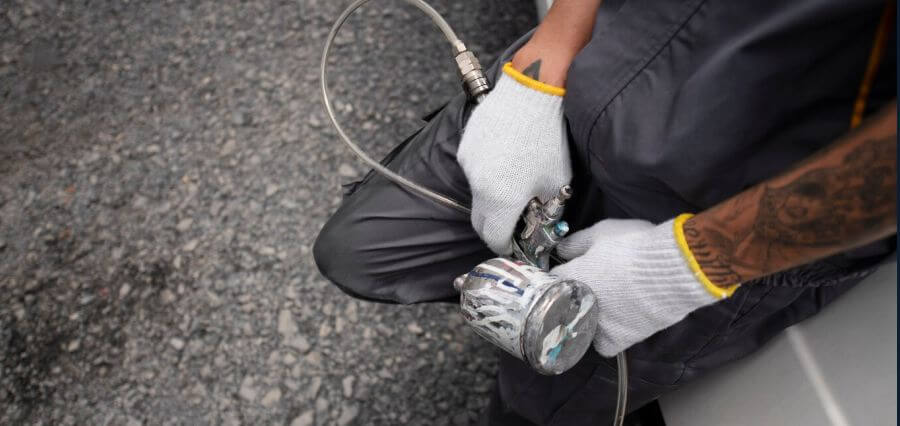The key to preserving the endurance and appearance of your asphalt driveway lies in choosing the appropriate sealer. With various options available, it’s important to understand the different types and their specific benefits. Here, we explore the best types of sealers for asphalt driveways, helping you make an informed decision.
Epoxy Sealers
Epoxy sealers are a premium option for homeowners looking for top-notch protection for their asphalt driveways. These sealers are made from epoxy resins and hardeners, creating an extremely durable and resilient surface. Epoxy sealers are highly resistant to water, chemicals, and heavy traffic, making them suitable for residential and commercial applications. Besides, their unparalleled protection and longevity can justify the higher investment if you seek the best blacktop sealer for your driveway.
Asphalt-Based Sealers
Asphalt-based sealers, an excellent choice for driveway protection, are made from asphalt emulsion. This composition ensures their effectiveness and makes them a more environmentally friendly option than coal tar-based products. Their ease of application and low odor emission make them a responsible choice for residential areas, fostering a sense of environmental consciousness.
Coal Tar-Based Sealers
Coal tar-based sealers are among the most popular choices for asphalt driveways. Known for their durability and resistance to elements, these sealers provide a protective layer that guards against water, oil, and UV damage.
The high concentration of coal tar makes these sealers highly effective in preventing cracks and potholes, which are common issues in asphalt driveways. Moreover, they offer a rich, black finish that enhances the overall appearance of your driveway.
Acrylic Polymer Sealers
Acrylic polymer sealers are known for their superior performance and versatility. Crafted using advanced polymers, these sealers offer superior protection against water, chemicals, and UV rays. They establish a robust, long-lasting surface less prone to damage, making them well-suited for driveways subjected to high traffic volumes.
One of the key advantages of acrylic polymer sealers is their quick drying time. This allows for faster application and minimal disruption to your daily routine.
Penetrating Sealers
Penetrating sealers work differently from surface sealers. Instead of forming a protective layer on top of the asphalt, these sealers penetrate the surface and reinforce the material from within. This type of sealer is particularly effective in preventing water damage and extending the life of the asphalt by improving its internal structure.
Latex-Based Sealers
Latex-based sealers offer a blend of affordability, ease of application, and environmental friendliness. These water-based sealers are less toxic and have a low VOC content, making them a safer choice for the environment and human health. They protect against UV rays and weathering, helping preserve your driveway’s appearance and integrity.
Factors to Consider In Selecting a Sealer For an Asphalt Driveway
Environmental Impact
The environmental impact of a sealer is an important consideration today. For instance, coal tar sealers contain abundant VOCs, which can worsen air pollution and have harmful health implications. Asphalt emulsion and acrylic sealers are preferable options for minimizing their environmental footprint. They provide sufficient driveway protection with fewer harmful emissions.
Cost and Value
Cost is a significant factor when choosing a driveway sealer. Coal tar sealers are generally the most cost-effective option, offering robust protection at a lower price than acrylic sealers.
However, if the driveway is in a region with specific environmental restrictions, or if the homeowner prefers a more eco-friendly option, acrylic or asphalt emulsion sealers, despite their higher initial cost, might offer better value in the long run due to their lower environmental impact and good protective qualities.
Ultimately, the best sealer for your asphalt driveway depends on your budget, environmental considerations, and desired level of protection. By understanding the benefits and drawbacks of each type, you can make an informed decision that will keep your driveway in top condition for years to come.


